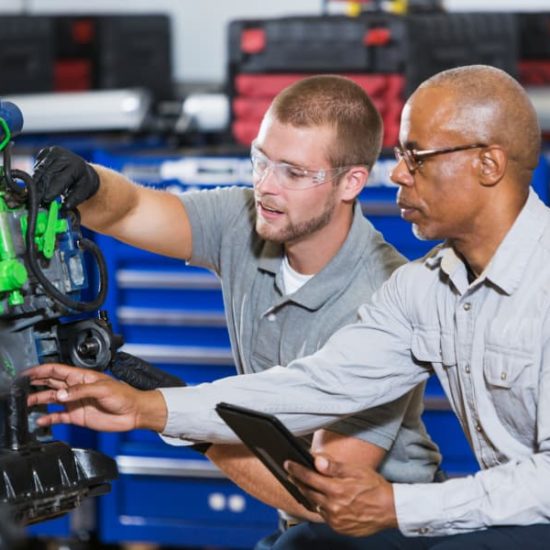The Differences between Fleet Technician Jobs and Automotive Technician Jobs
Are you considering a career in the automotive industry? While there are many potential career paths in this growing field, one popular choice, especially for entry-level professionals, is working as a technician. These technicians use specialized skills to repair vehicles and keep them running smoothly. Here, NYADI The College of Transportation Technology discusses the differences between fleet technicians and automotive technicians.
What These Professionals Do
Both fleet technicians and automotive technicians provide a critical service in keeping motorists safe on the road. Both automotive and fleet technicians may work independently or as part of a team of techs. Here’s a closer look at each position:
Automotive Technicians
Automotive technicians are responsible for inspecting, maintaining, and repairing cars, light trucks, and motorcycles. Their typical duties can include:
- Inspecting vehicles to ensure compliance with state requirements
- Performing basic maintenance, such as an oil change
- Performing specialized repairs, such as replacing brake pads
Fleet Technicians
Fleet technicians are also responsible for vehicle maintenance, but they are charged with caring for a group of vehicles, such as a fleet of tractor-trailer trucks. Some of their common job functions may include:
- Fleet management and maintenance
- Performing and documenting repairs
- Running diagnostic checks before a vehicle goes into the field
- Inspecting vehicles that have been returned to a fleet garage
Differences in Work Environments and Responsibilities
While fleet technicians and automotive technicians utilize many of the same skills, there are some differences between the day-to-day tasks and the type of setting in which they work. For example, a fleet technician may work for a trucking company or a state transportation authority. In contrast, an automotive technician may work at a car dealership, an auto parts store, or an auto body shop.
One of the main differences is the type of vehicle that these technicians service. A fleet technician may specialize in working one type of vehicle, as opposed to an automotive technician who may need to be a jack of all trades, working with many different makes and models. Fleet maintenance tends to require expertise in diesel engines, whereas automotive technicians are often servicing personal vehicles with gasoline-powered engines.
If you’re seeking variety in your job responsibilities, working as an automotive technician may be a better fit, as you could work on a different vehicle each day of the week. However, if you’re interested in traveling as part of your job, fleet maintenance might be right for you – the cross-country nature of the trucking industry can mean that fleet technicians are required to travel to perform repairs offsite.
Of course, both occupations require a strong foundation in automotive technology, vehicle systems, diagnostics, and repair. To enter either profession, it’s helpful to have postsecondary training, such as an associate’s degree or a certificate. These programs offer the knowledge and skills required to find work in the automotive industry and ensure that you stand out from other candidates when applying to jobs.
Train for Technician Jobs with Help from NYADI
If you’re looking to pursue a career as an automotive technician or a fleet technician, NYADI The College of Transportation Technology is the perfect place for job-focused training. NYADI offers degree and certificate programs at our campus in Jamaica, New York, and our extensive career services help students prepare for life after graduation. To learn more about our programs, contact us today.



